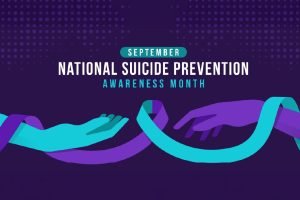In honor of Domestic Violence Awareness Month, I find myself reflecting deeply on the strength and resilience of women—especially my mother. Her life was complex, filled with unspoken struggles and sacrifices that, even now, I’m only beginning to understand. She was a woman who lived in the shadows of her fears, but behind that veil was a story of quiet bravery, untold love, and resilience that I failed to see.
Unveiling a Hidden Past
I grew up with a mother who was difficult to truly know. When I was born, she was 44—considered the oldest woman in our country to give birth naturally at that time. That fact alone made her a quiet marvel, but it also meant there was a whole life she had lived before I came along, one I was never fully privy to. We didn’t share a lot of physical time; I always saw her through the lens of a child who wanted more connection, and more openness. But the mother I did know was fearful. She was afraid of heights, wouldn’t drive, and trusted no one entirely. Her life seemed defined by a devotion to my father and a quiet terror of losing him.
Yet there was so much more to her than I understood. Before she was my mother, she was a daughter of military officials. My grandfather was a national hero, and her mother—my grandmother—was a double agent during the war, risking her life to help Jewish families escape Rome. A book was written about her bravery, but I didn’t know any of this until years after my mother had passed. Why had she never spoken about it? Was it a matter of privacy, or did she not see the value in sharing such history with me?
I found out that, before marrying my father, my mother had led a life that seemed impossible to reconcile with the woman I knew. She had traveled widely, living in places like London, Cairo, Portorož, and Moscow. She spoke four languages fluently, yet somehow, despite our shared language, we never seemed to fully understand each other. She had once been fearless enough to ride a motorcycle, but that side of her was overshadowed by the anxious woman I grew up with.
The Woman I Thought I Knew
When I was a teenager, I would see her confidence and skill come through in unexpected ways. She was a lawyer who excelled in her field, even turning down a prestigious role as the head of a juvenile detention center at just 27. Instead, she chose to build a life with my father, sacrificing career ambitions and settling into a role that would later consume her—always worrying about him, setting traps to catch him in lies, confronting the reality of his infidelity. Yet, despite her heartbreak, she stayed. I used to think it was weakness that kept her there, but now I see it as a complicated kind of strength—a choice to hold the family together no matter the cost to herself.
There were glimpses of her other life, moments that hinted at the woman she could have been if not for the fears that seemed to take hold of her later on. She had a way of knowing things; she was like a human lie detector. I remember the time I skipped a math class to sneak away to a café with friends, thinking I had gotten away with it. But then she showed up out of nowhere, asking me for a lighter. She always knew where I was, what I was up to. It made me feel both seen and unseen—understood yet not really known.
In many ways, my mother and I were similar. She was fiercely protective, driven, and intuitive, qualities I didn’t fully recognize or appreciate while she was alive. But there were always unanswered questions, layers to her I never could peel back. We never spoke openly about her dreams, her fears, or even her regrets. Now that she’s gone, I regret not asking those questions sooner.
Piecing Together the Fragments
It’s been eight years since she passed away, and with each year, I feel like I know her a little less and want to know her a little more. I’m left piecing together fragments—old photographs, stories from family members, the few belongings she left behind—trying to make sense of the life she led and the sacrifices she made. It pains me to think that I may never truly understand her, that there will always be parts of her story that remain a mystery.
The last conversation I had with her was, ironically, all about me. She was lying in bed, ravaged by cancer, and I begged her to fight, to hold on so she could see me graduate, meet my future children, come to my wedding. “Mum, don’t you want to fight for these things?” I pleaded.
“I do, I do…” she whispered, her voice trailing off. Now I wonder if I had asked differently, could things have been different? If I had said, “Mum, don’t you want to ride your motorcycle again? Don’t you want to see the world one more time?”—would it have sparked something inside her that gave her the strength to fight a little longer? Maybe. Or maybe I was just a daughter who didn’t quite understand what my mother needed in her final days.
During this Domestic Violence Awareness Month, as I reflect on my mother’s life, I’m reminded of the countless sacrifices that women make, often without acknowledgment. My mother’s life, though marked by struggles, was also a testament to the endurance and quiet strength that many women possess. She was more than a wife and mother. She was a lawyer, a traveler, a protector, and a woman with a story that was far more layered than I ever realized.
I share this as a tribute to her, and to all the women whose complex stories often go unnoticed. Let’s recognize their resilience, the bravery it takes to keep moving forward despite life’s challenges, and the sacrifices made in silence. My mother’s story is a reminder that every woman’s life is a tapestry of struggles, strengths, and moments of quiet victory.
May her memory be a symbol of love, resilience, and the enduring strength of women.
The STAR Network offers free, neuro-regulated, peer-to-peer support meetings through TAR Anon™ for women, parents, families, and anyone who is struggling and in need of guidance. These safe spaces provide invaluable support, complementing existing therapy by helping parents transform and become their own source of healing. While these meetings are not a substitute for therapy, they can significantly enhance the healing journey.







